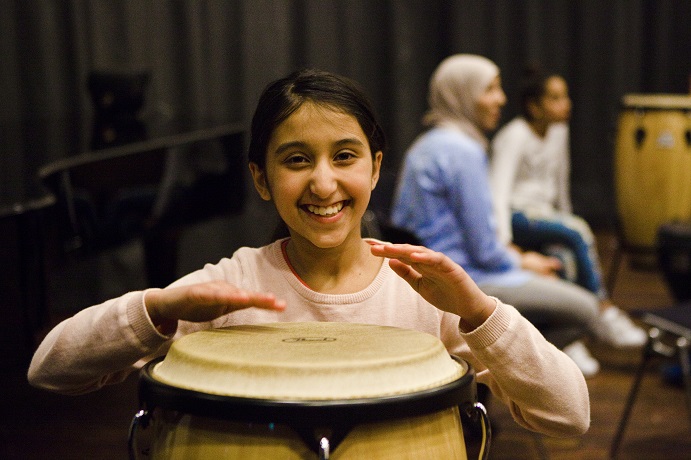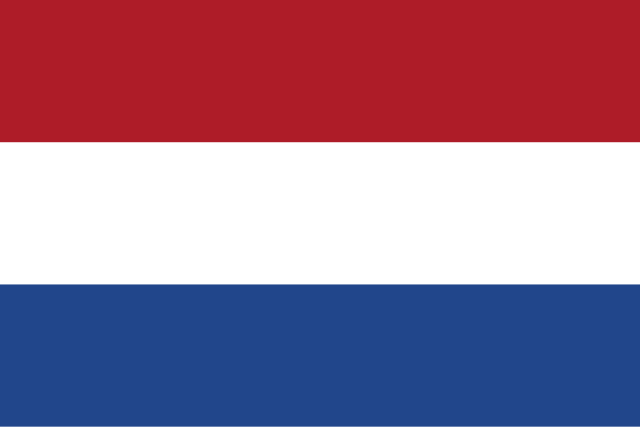Voluntary energy in times of crisis

Unintentionally and unexpectedly, we were confronted at the beginning of this year with a situation we did not ask for. From rapidly setting up emergency aid to dealing with an excess of offers to help. A boundless voluntary energy has emerged during the time of the coronavirus that we have not often encountered. Along with At the Volunteer Academy Amsterdam (VA), we organized a series of masterclasses to bring together knowledge and share experiences. This was done in the form of three webinars in which Lucas Meijs, Professor of Strategic Philanthropy / Volunteer Work, shared his expertise with volunteers, professionals, and other interested parties. Here we summarize the knowledge gathered in a (video) report.
Power of connection and on timeIn summary, we can state that the connection between voluntary energy, the municipality, and maintaining the relationship between organizations and volunteers during lockdown times requires extra attention and a different form. Do not wait until it is a crisis. If care and support need to be scaled up, be sure to include the strength of the existing offer. As Lucas Meijs jokingly suggests‘If the volunteers keep getting in the way, you might as well take them with you.’
Video & report: the webinars with Lucas MeijsVideo recordings of all these presentations and good conversations are available. You can watch them back as if you were there. At the very bottom, you will find a concise summary of all the webinars. Enjoy watching and reading.
Applause for Volunteers – May 14, 2020
Reciprocity– June 15, 2020
Can it be improved?– August 31, 2020
Applause for volunteers
The series of webinars kicked off with applause to thank all volunteers for their efforts. ‘Especially in times like these, we should celebrate that we don’t just sit back and do nothing,’ Lucas addresses all attendees with infectious enthusiasm. He engages in a conversation with Henriette van der Meij, director of VCA, and Karin Hanekroot, director of VA. In Amsterdam, there were already 250,000 volunteers active, and since the corona crisis, another 6,000 have joined. It is quite a challenge to manage all that voluntary energy effectively. Due to many organizations having to close their doors to visitors and volunteers, there are many ‘unemployed’ volunteers. It is particularly difficult to match available assistance with those in need.I am afraid to ask for helpMr. Meijs spoke about the art of offering help. Sometimes the recipient is afraid of what he/she might have to do to ‘repay’ the volunteer. This sometimes leads to not asking for help. An important value that you want to create in contacts as a volunteer according to Lucas is reciprocity. Important guidelines in maintaining voluntary energy is not to problematize. You can expect a volunteer to stick to their agreements. Keep the process open as a coordinator and organization, and treat volunteers the same as professionals. Both receive the same protective measures, and if that is not possible, you look for a solution together. Finally, Professor Meijs emphasizes that it is essential that both volunteers and professionals receive applause. Today, voluntary strength received applause from Lucas Meijs. “Voluntary energy is like a weed, the harder you push, the stronger it becomes.” From this ode, we delved deeper into the relationship between ‘buddies’ or help-seekers and volunteers. How can this improve in times of crisis. A keyword in this is reciprocity, and thus the foundation was laid for the second webinar.
All – Reciprocity
What does reciprocity mean in the (volunteer) practice? This was discussed during the second masterclass, as well as how to help someone without being patronizing. A volunteer opened this topic with some questions including: “How do I engage in contact in an equal way when I see things are not going well? My buddy had almost no food at home and couldn’t get it themselves. How do I deal with my buddy’s reluctance to ask for help and how can I ensure reciprocity in such a contact?” Professor Meijs responds by highlighting how difficult it is to ask for help and to admit that help is (temporarily) needed. We grow up with the idea that it is good to be autonomous, and this can lead to reluctance to ask for help and the feeling of needing to do something in return. That’s why reciprocity in a relationship is so important. If you (as a volunteer) give a lot or threaten to give a lot, you put a strain on the relationship. Saying “You can always call me” is a well-intentioned message. However, by doing this, you deprive your buddy of the opportunity for a reciprocal relationship. The person receiving help then feels like they can never ‘repay’. This results in ‘lopsided reciprocity’ that recipients fear and volunteers should avoid. One way to avoid this is to accept that bag of candy for your children or nephew, even if it’s not used at home. Some questions volunteers can ask themselves to assess if they have an equal relationship are: ‘Am I taking over? Am I giving someone the space to say ‘no’? Am I treating that person like a child? You want to avoid being paternalistic. This means that (with good intentions) you assume you know what is best for someone else.
lll – Can it be better?
In early September, we concluded the series with a special masterclass focusing on the following question: How can we better channel voluntary energy in the next crisis? This webinar focused on organizing and guiding volunteers at the municipal, organizational, and governmental levels. An expert panel reflected on the (emergency) aid provided this year to draw lessons from it.Form an urban crisis team (now)Professor Meijs first suggests forming a (positive) Voluntary Energy Crisis Team of 10 key people at the urban level to prepare for how to deal with the flow of voluntary energy in case of a crisis, especially in the event of another lockdown. It is advisable to already inquire with people in need of assistance what they would require if such a situation were to arise again. This way, organizations, aid workers, and volunteers can quickly initiate the right support in the event of an unforeseen future crisis.Prepared for volunteers who ‘do not fit’During a crisis, there are enough volunteers available, trust in that. However, as an organization, be prepared for volunteers who ‘do not fit in with you’. As an organization, you can prepare for this by partially letting go of the fixed job profiles for volunteers. Create a place for a volunteer, even if at that moment you are looking for different skills than he/she offers. This is a good example of nurturing voluntary energy. Ask the volunteer and the help seekers together to help create ‘the new templates’ (job descriptions). If a volunteer still does not fit a request from your resident or organization, think along and refer and if necessary, guide him/her to another place.Positive connectionsAnother area where voluntary energy began to flow was at the Droomwevers foundation, which is committed to the cultural education of children. Marco Lassche (board member) explains how they sought positive connections with the ‘World of Music’ project.
Firoez Azarhoosh from the Meevaart Foundation shared his experiences about meal services in East and checked how the information about Corona was being provided in the neighborhood. They have prepared a bulletin in different languages. They have learned that it is advisable to set up coordination of such assistance before it is needed. And they believe it is important for the municipality to also play a role in this.
Marijn van Ballegooijen (alderman in the municipality of Amstelveen) could directly relate to this. He noticed how many small-scale initiatives were of great value and sees an opportunity in strengthening social informal networks in the neighborhood. He also acknowledges that this can sometimes be challenging in places where many people live close together. Small-scale initiatives can help build care relationships. A critical note from practice is that the municipality has a responsibility to involve volunteers more and connect them to contacts within the municipality.

